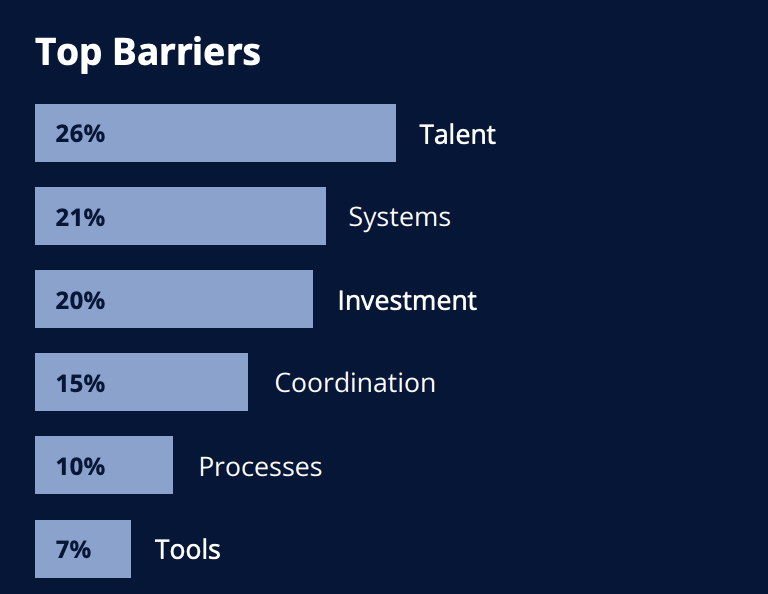
'Enterprises struggle to find talent to bridge technical AI skills with business domain expertise'

Talent availability has emerged as the top barrier preventing organisations from maximising the potential of artificial intelligence, according to a new study.
The report, released by ISG, shows that 26% of executives in mostly multinational enterprises consider access to talent as a top barrier to or delay in bringing data initiatives to full production.
This barrier includes a shortage of AI skills, as well as the ability to hire and upskill existing employees.
"Enterprises struggle to find talent to bridge technical AI skills with business domain expertise and achieve their desired outcomes," the ISG report said.

This talent gap has been uncovered in a Bain & Company report earlier this year, which warned that while AI-related job postings surge, the number of qualified candidates is not keeping pace.
According to the research, Germany could see the biggest AI talent gap, with around 70% of the country's 190,000 to 291,000 estimated AI job openings expected to be unfilled by 2027.
The United States, United Kingdom, India, and Australia could also be facing similar fates, as AI-related job postings balloon while candidate supply falls short.
The lack of access to talent has been cited in the ISG report as one of the barriers to data and AI projects.
Additionally, the report found that 65% of leaders believe managing complexity prevents them from using data and AI more than a lack of innovation.
These barriers come despite growing investment in data initiatives, including getting business value from insights (55%) and productivity gains from data and AI (50%).
"Data is the growth area for IT, especially to support adoption of AI," said Alex Bakker, ISG distinguished analyst and co-author of the study, in a statement. "Companies believe investments in data will ultimately enable better insights and efficiency through AI. But multiple technology and operational barriers are preventing many companies from reaching AI goals."
However, organisations expect that the number of data users in the organisation (11.5%), as well as the number of data staff deployed (4.5%), will increase in the next two years.
Three in four companies also expect to increase their annual budgets in the next two years for projects such as improving data quality, integration, and security.
"Enterprises expect to increase spending on data initiatives alongside staffing to support new projects, incl. via managed service providers," the report read. "The business expectation is that the value delivered from data initiatives will grow at twice the pace of investment."